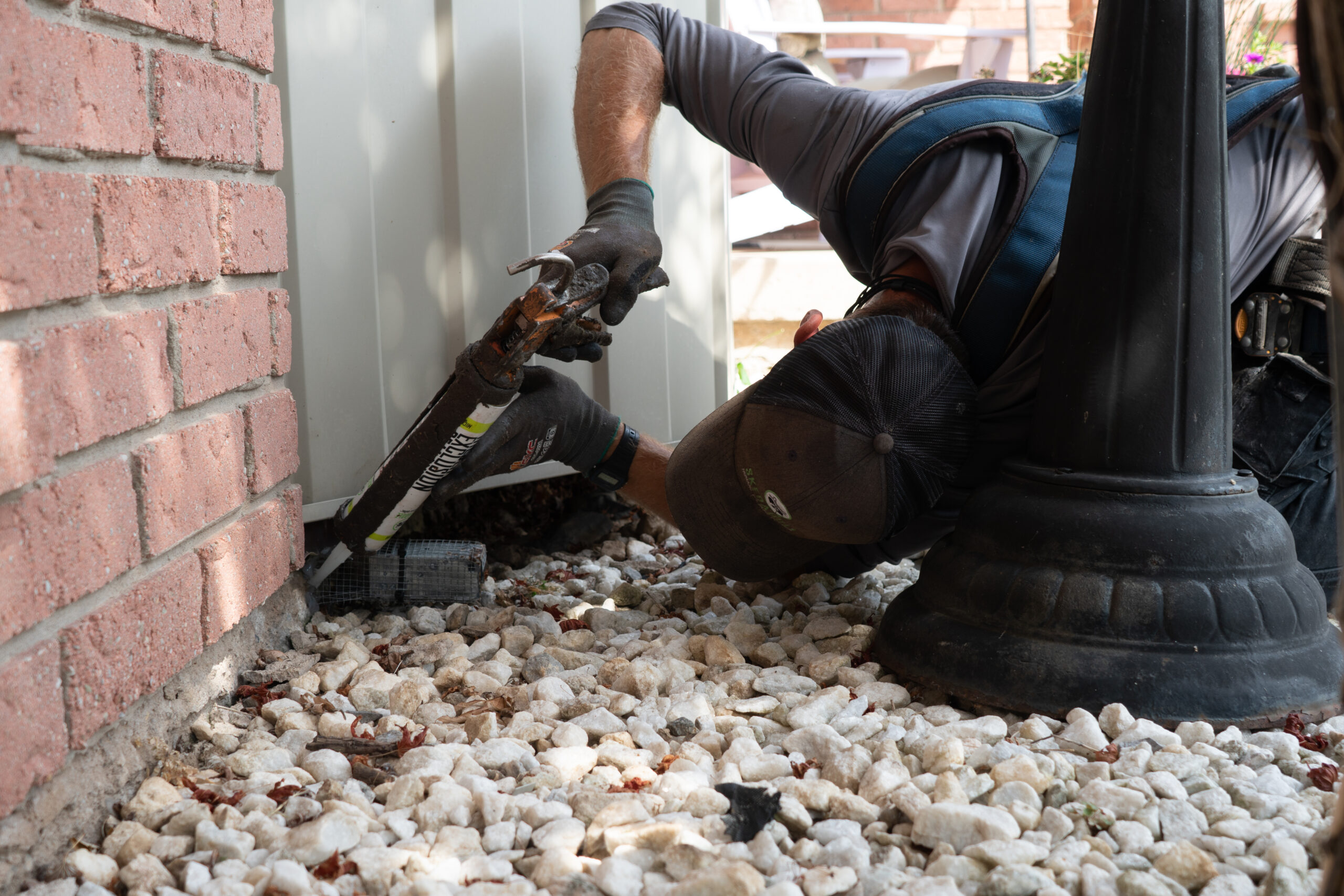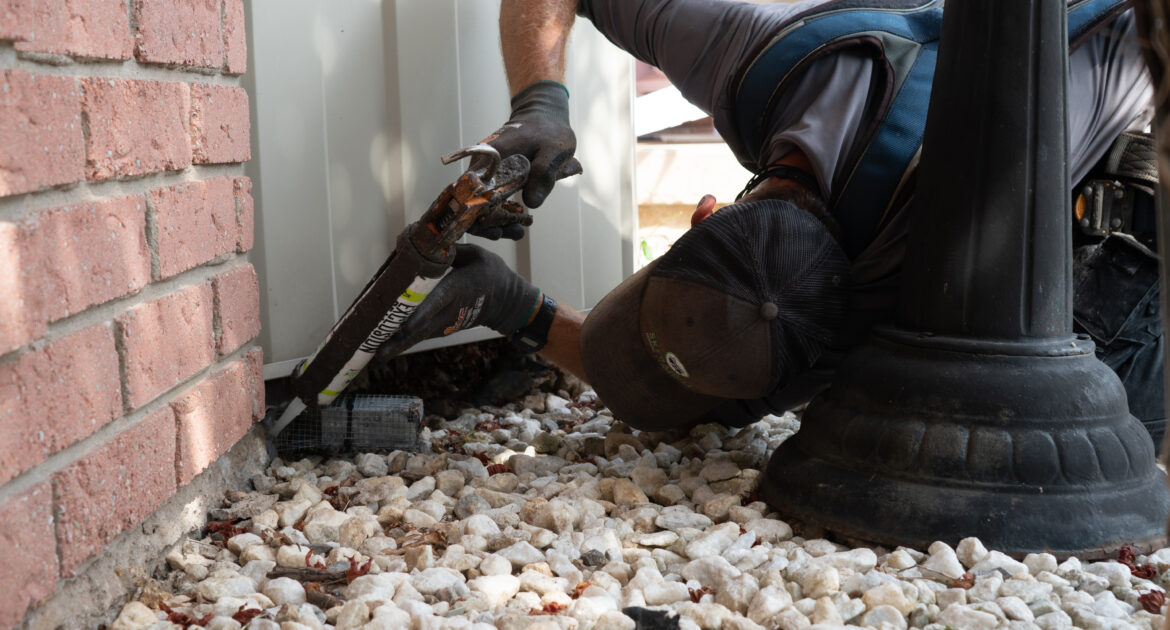All mammals react differently as temperatures begin to drop. Bears, for instance, choose to spend the winter hibernating and reducing their sleep deficit. Humans protect themselves from the cold weather with warm blankets, hot cocoa, and blazing speed runs of their favorite binge-worthy TV shows. Mice, the smallest creatures mentioned here, also stay active even when falling leaves are replaced by falling snow.
Since these furry rodents remain engaged in their daily routine, it’s still necessary to engage in mice prevention techniques during the winter. To better understand why this is the case, it’s important to understand what exactly mice are up to during the holiday season and how to best practice humane wildlife removal practices.
What Do Mice Do In Winter?
Depending on your personal experience, you may or may not be surprised to learn that mice sightings within the home will actually increase during colder months. Mice, like humans, enjoy the sunny summers outdoors as often as they can. They establish residence in tree roots, bushes, and hollow logs. Each of these shelters provides easy access to common rodent food sources like berries, nuts, and seeds.
However, as temperatures begin to plummet, these food sources begin to die off. Mice are also affected by the cold and they scramble to find new shelters that provide the needed warmth to live through the winter. During this search, they often make their way into our attics, garages, and sheds.
It’s not just this trek for warmth that leads to an increase in the mouse population within your home, though. Mice have a year-long breeding season combined with a short gestation period, and are capable of delivering up to 10 litters each year. With each litter itself containing five to six newborn mice, it means that the often ignored corners of your home can soon become a nursing suite for full infestations of rodents.
How Cold Is Too Cold For Mice?
What is the coldest temperature mice can survive? While there is no definite answer on the lowest temperature mice can survive, we do know that mice are highly adaptable creatures. Still, they prefer warm weather, and while they do remain active throughout the winter, their adventures are much more grandiose during the warmer months..
Their preference for warm weather is even reflected in laboratory settings. Scientists and researchers have found that mice prefer temperatures around 86 degrees F, which is reflected in the most warm corners of our homes during the winter, like attic spaces.
At this point you may be wondering, “can a house mouse survive outside in winter?” Interestingly, scientists have found that mice were willing to brave the cold when they also had increased access to nest-building materials. So, they may not want to be outside for long, but they can survive. The mice that chose this route also tended to eat less, as they had reduced metabolic needs.
How Can You Prevent Mice In Your Home?
While all of this may be interesting to amateur wildlife biologists and zoologists, you likely are wondering how you can protect your home from infestation while still acting humanely. Perhaps the best way to do this is taking preventative steps before the mice have entered in the first place.
Mice can squeeze their way through the tiniest of holes and scurry into the smallest of openings. Often these entrances exist near where piping and utilities enter your home or cracks in your house’s exterior. Before temperatures drop each year, examine your home’s perimeter and exterior. If you notice any cracks, holes, or other tiny gaps, take time to seal or plug them correctly, or call in the experts to do it for you.
The further that mice have to travel to find warm shelter, the less likely they are to find it. So, also take time to find any potential places mice are residing outside and take steps to remove these summer homes. Piles of wood, unkempt bushes, and gnarled tree roots are all common homes for mice. Move the wood further away from your home and try to trim any overgrowth to keep rodents from making the quick dash into your residence.
How Traps and Winter Weather Harms Mice
While it’s common to think that live traps are humane, they can force mice to be exposed to extreme cold weather. Using live traps can result in the mice near your home freezing to death as they struggle to get free. If you suspect that you have mice in your home or business, the best course is to call in the professionals at Skedaddle to handle the job. Our technicians can safely and effectively remove the mice without harm to them or your family.
Who Should You Call For Humane Wildlife Removal?
When it comes to dealing with wildlife in your home, it’s always best to leave it to the professionals. That’s where Skedaddle Humane Wildlife Control comes in. We’re experts when it comes to humane mice prevention and wildlife removal. Dealing with wildlife removal on your own can be a risky proposition. Even something as small as a single mouse can carry diseases that can be harmful to you and your family. Don’t take any chances; let Skedaddle Humane Wildlife Control help ensure your home remains animal-free. With our expertise and humane techniques, you can rest easy knowing that your wildlife removal needs are in good hands.
Contact us or call today at 1-888-592-0387 for your wildlife prevention or removal needs.






